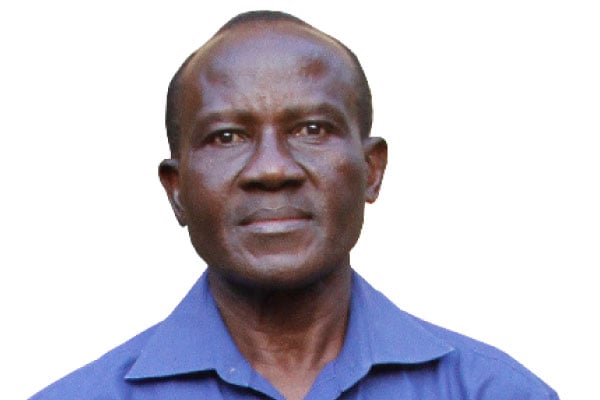Prime
US side-steps govt on Ebola cash over graft

Health workers at the Entebbe Regional Referral Hospital Ebola isolation centre last month. Part of the US funds will go towards managing Ebola cases. PHOTO/ISAAC KASAMANI
What you need to know:
- The US had donated approximately Shs22.8b out of Shs85b to the Ministry of Health to support intervention against the disease.
The United States has said it is channeling its financial assistance to fight Ebola Virus Disease (EVD) through implementing partners, rather than the Ugandan government because it does not want the money to end in the “wrong pockets”.
“Corruption is a very serious challenge,” US Ambassador Natalie Brown said, citing past revelations by the Inspectorate of Government (IG).
“There was a report released by the IGG about the cost of corruption and that funds do not reach where they need to go. I appeal to those involved to do what they can to fight corruption instead of the money ending in someone’s pocket,” Ambassador Brown told a press conference in Kampala on Wednesday.
She was giving updates about American support in fighting the outbreak of EVD in Uganda, which by November 2 had killed 48 out of 131 patients.
The IG in October last year reported that Shs20 trillion, which is nearly half of the country’s budget, is haemorrhaged through procurement, budgeting, health care, taxation and education provision corruption.
The Minister of ICT and National Guidance, Dr Chris Baryomunsi, was unavailable to respond to the Washington position yesterday.
Earlier, the Health minister, Dr Jane Ruth Aceng, said external support was mainly in kind but she would have preferred it in cash.
The Health ministry Permanent Secretary, Dr Diana Atwine, in comments to our sister television station, NTV, said if donors had no confidence in Uganda, they would not be providing support – directly or indirectly.
The US envoy on Wednesday said they had donated approximately Shs22.8b out of a total Shs85b kitty to the allocatedMinistry of Health to support official intervention against the disease, money that Dr Atwine said they have not seen.
Allocations
A total of Shs20.9b of the American donation has been allocated to Baylor Uganda, Shs14.4b to Infectious Diseases Institute and Entebbe International Airport, and another Shs24.3b to various United Nations agencies.
According to Ambassador Brown, the money is to support Ebola Surveillance and contact tracing, case management, follow-up care for Ebola survivors, diagnostics and laboratories, risk communications and community engagement, infection presentation and control, care and treatment of patients, and also safe and dignified burials.
The US assistant administrator for global health, Dr Atul Gawande, asked Uganda to focus on preventive measures, including contact tracing to break the chain of Ebola spread.
Asked if the government should impose a localised lockdown on metropolitan Kampala, Dr Gawande bounced the decision to Ugandan leaders.
“The lockdown is a government of Uganda decision, but such a situation can be avoided if we bring the disease under control. The virus is real. If we relax, more cases can crop up anywhere. Ebola is a disease we can survive if we prevent transmission, ensure that contacts are traced and taken to hospitals to seek further guidance in time,” he said.
He added: “Seeking medical help early increases survival rate among Ebola patients. When I visited Kassanda (an epicentre of the disease), I met a man who had survived Ebola, but his wife and child did not. I also met a doctor who survived and narrated to me what he went through. It was terrible. We need the entire community to come on board and prevent the spread of Ebola.”
Ebola is a viral disease with a 21-day incubation period and causes acute, often fatal illness, and its patients vomit, suffer diarrhoea, rash, impaired kidney and liver function and in some cases bleeding through the orifices, according to the World Health Organisation (WHO).
It is transmitted from infected animals or contracted with fluids of infected persons such as saliva, stool and blood and, according to the UN health watchdog, the disease kills 25-90 percent of victims.
Dr Atwine said she was unsure how much they had spent on Ebola response, but they had asked for Shs76b, excluding anticipated donor support, for the first three months of the outbreak.
USAID Mission Director Richard Nelson urged the government and partners to provide accurate information to the public and address the stigma associated with Ebola so that infected persons can seek early medical care.
Background
Uganda confirmed the outbreak of Sudan strain of Ebola on September 20. The government responded by placing Mubende and Kassanda districts, the initial epicentres under lockdown, although transmission with thousands of suspects contacts at large. It has established isolation and treatment centres in the two districts and strengthened Mulago National Referral Hospital and Entebbe Hospital to treat new cases, particularly in metropolitan Kampala.




